Professor of IPB University: Oral Sovereignty Can Press Imports

Professor of the Faculty of Human Ecology (Fema) IPB University, Prof. Ahmad Sulaeman stated that one of the main pillars of balanced nutrition is to consume a variety of foods. There is not a single food commodity that has a complete and sufficient nutritional content.
This was conveyed by Prof. Sulaeman in The 5th Strategic Talks at Dramaga Campus, Bogor (9/8). The event, which was held by the Directorate of Scientific Publication and Strategic Information (DPIS) of IPB University, raised the theme "Diversification, Quality and Food Safety Strategies in the Efforts to Meet Balanced Nutrition".
According to Prof. Sulaeman, efforts to diversify the types of food consumed should include food sources of energy and nutrients so that the need for food and nutrition can be met both in terms of quantity and quality.
"Food is a strategic commodity and an indicator of food sovereignty. This is the main urgency of food diversification. In addition, food diversification is also needed as an important pillar that supports food security. To achieve food sovereignty, there needs to be an awareness of sovereignty, one of which is the awareness that we have oral sovereignty. The sovereignty of the mouth of the Indonesian people can ward off flooding imports of products, because through this sovereignty we can determine what food enters the mouth. This is where priorities are needed to prioritize consuming local food, especially from local farmers. We need to learn from South Korea regarding this sovereignty, because they prioritize food from local products, "said Prof. Sulaeman.
Meanwhile, Prof. (Em) Dr. Ir. Tien R Muchtadi, MS also said that the drastic increase in population is an indication of the rapid growth of Indonesia's domestic market. The more the population, the level of consumption will also increase. As a result, food demand will also be higher.
"Therefore, innovation and application of technology to support food diversification are very important. The carrying capacity of technologies that can be carried out include bionanotechnology, precision farming, biocyclofarming and irradiation technology. The technology has been widely applied, but has not yet come to the surface, "said Prof. Tien.
Prof. Tien was concerned to see the current condition of Indonesian people who were more inclined to buy food products with foreign brands or imported products. The challenge for Indonesia today is not only diversification to increase productivity but also diversification of end products. Therefore it is necessary to have a roadmap for diversification of staple foods, starting from upstream to downstream.
"Innovation on the product sales side is also needed so that it is easily accepted by the public. For example, by involving social people for product sales and marketing strategies. Indonesian food preparations such as those sourced from cassava and corn must be packaged in such a way as to make them more attractive to the community, especially the younger generation. I hope the National Strategic Leading Research (RUSNAS) program that has been carried out in Indonesia can be resumed, "he added.
Besides food issues, this activity also discussed stunting issues. Lecturer of the Department of Aquatic Product Technology, Faculty of Fisheries and Marine Sciences (FPIK) IPB University, Dr. Ir Wini Trilaksani said that one important formula in reducing stunting is by increasing food production and diversification not only from agriculture, but also the fisheries, livestock and marine sectors .
"The current condition of the community in some fishing areas there are still many fishing families who prefer to sell the fish they catch rather than consume. This illustrates the lack of community interest in consuming fish. In 2019, fish food sovereignty can be achieved with the target of Indonesian fish consumption of 52 kilograms per capita per year, "he said.
Dr Wini also emphasized that the strategy of diversification in the field of fisheries is an important key in fish food sovereignty, namely through the implementation of Blue Economy. Important aspects of Blue Economy include re-processing of industrial waste (by-products) of fisheries production so that there is added value and a high selling price. In addition, the use of raw materials as much as possible and also efforts to reduce waste generated.
"If Blue Economy can be implemented, Indonesian fisheries can become more competitive," he added. (** / Zul)


